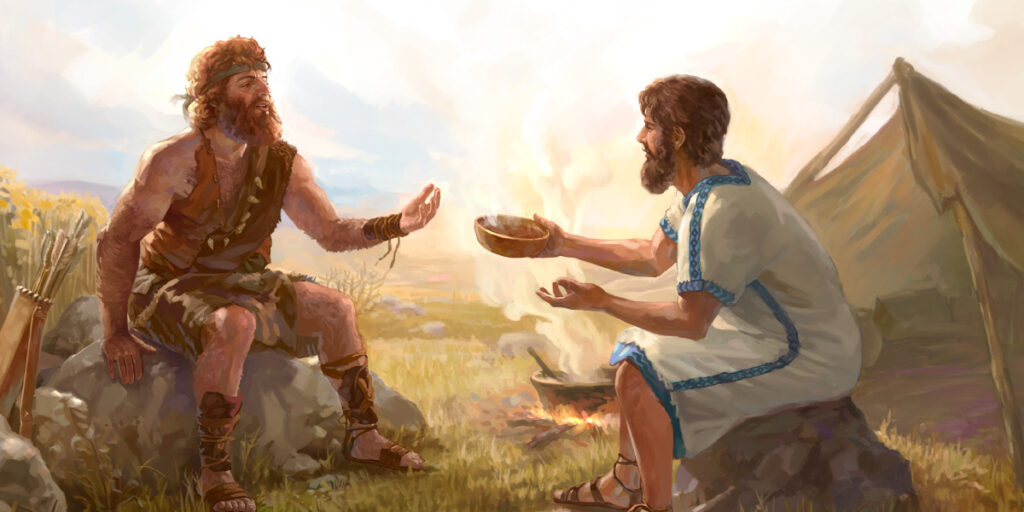When things appear random in scripture, they often aren’t. Beneath the surface, there’s a pattern, progression, or symbolism that reveals deeper meaning. This is particularly true in the book of Malachi. But what does that have to do with a Love-Hate Relationship?
Malachi unfolds as a dialogue between God and His people, framed by thought-provoking questions. At first glance, these questions seem almost sarcastic—God raises issues, responds to them, and, in doing so, exposes the Israelites’ hearts. But what if these questions aren’t random at all?
The first question God addresses is about His love for His people:
“I have loved you,” says the Lord. But you ask, ‘How have you shown your love?’
Was not Esau Jacob’s brother?” declares the Lord. “Yet I have loved Jacob, but Esau I have hated. I have turned his hill country into a wasteland and left his inheritance to the desert jackals.”
— Malachi 1:2-3

At first, this feels uncomfortable. How can a loving God “hate” someone? Isn’t God defined by love? Does this passage contradict our understanding of who God is? Maybe these feelings come from my tendency to try to fit God into my own God-shaped box. Or perhaps I’m the one who needs to reshape my understanding of God.
Understanding God’s “Hate” in Scripture
To make sense of this passage, we need to unpack the word “hate.” Other scriptures where “hate” appears can shed light on its meaning:
- Genesis 29:31-33
- Romans 9:10-13
- Luke 14:26
- Matthew 6:24
In each of these passages, the word “hate” doesn’t signify active malice or cruelty. Instead, it conveys a matter of choice or priority. It’s not about hatred as we understand it—it’s about preference or choosing one thing over another.

For example, consider Jacob’s relationship with Rachel and Leah, the bible’s original love triangle. Jacob loved Rachel, but Leah became his wife as well. Jacob didn’t despise Leah; he simply chose Rachel as his first love. Similarly, when Jesus says:
“If anyone comes to me and does not hate father and mother, wife and children, brothers and sisters—yes, even their own life—such a person cannot be my disciple.”
— Luke 14:26
Jesus isn’t encouraging us to detest our families. Instead, He’s emphasizing that our love for Him must take priority over everything else—even the most important relationships in our lives.
Hate and Priority: What Does This Mean for Us?
The same principle applies when scripture contrasts love and hate. It’s about making a choice. A powerful example comes from Matthew 6:24:
“No one can serve two masters. Either you will hate the one and love the other, or you will be devoted to the one and despise the other. You cannot serve both God and money.”

No one truly hates money. Money is a tool; it solves problems, provides for needs, and helps us care for others. The issue arises when we elevate money to God’s level—trusting it, pursuing it, and allowing it to define our lives. Jesus warns us not to love money, because it will divide our hearts and distract us from our true source of life and healing: God.
This brings us back to Malachi. The book opens with God addressing His love for His people—a love that is deliberate and unwavering. He chose the Israelites and made them His priority in a covenant relationship. But Israel struggled to love God in return. Like many of us, they misunderstood love, reducing it to a feeling or a transaction. God, however, shows us that real love is about commitment and priority.
Love Is a Choice
God’s love sets the tone for the entire book of Malachi. His message is clear: Love is a choice. It’s not about fleeting emotions or what we gain from it. It’s about deciding what will take first place in our lives.
When we approach God with half-heartedness, it’s equivalent to hatred. Why? Because it means we’ve chosen something else over Him. God’s covenant love toward His people demonstrates what real love looks like—it’s about choosing commitment, prioritizing the other, and seeking their highest good.
God chose us. Will we choose Him?
Key Takeaways:
- In scripture, “hate” often signifies choice and priority, not malice.
- Love is not just a feeling; it’s about commitment and putting God first.
- When we allow anything—money, relationships, success—to compete with God, we miss the fullness of His love.
- God’s love for us is intentional and unwavering. Our response to that love requires us to make Him our highest priority.

